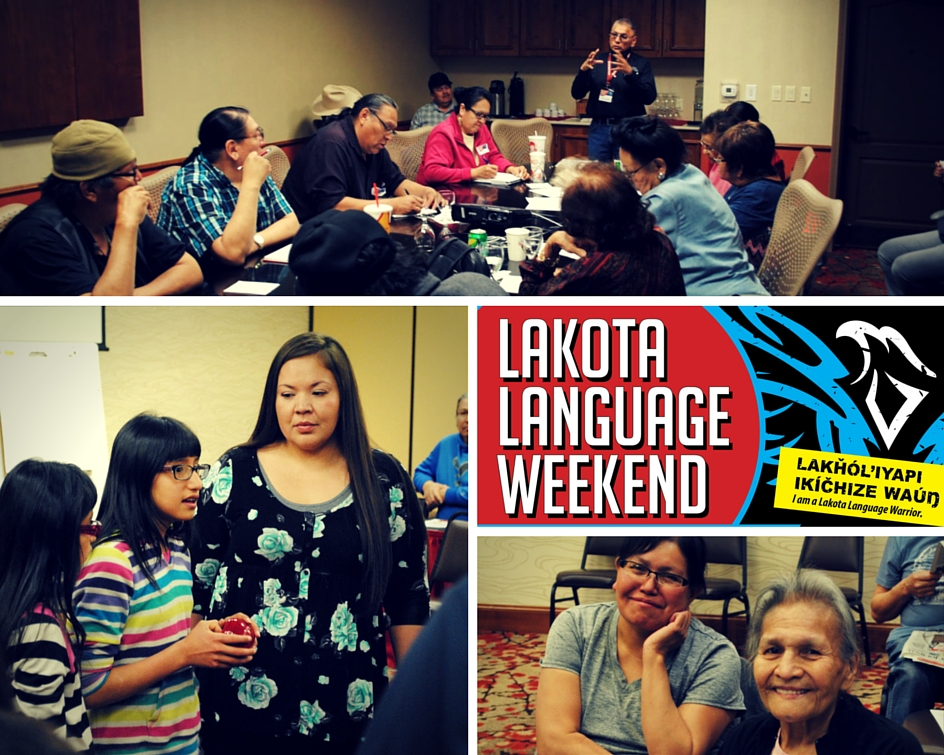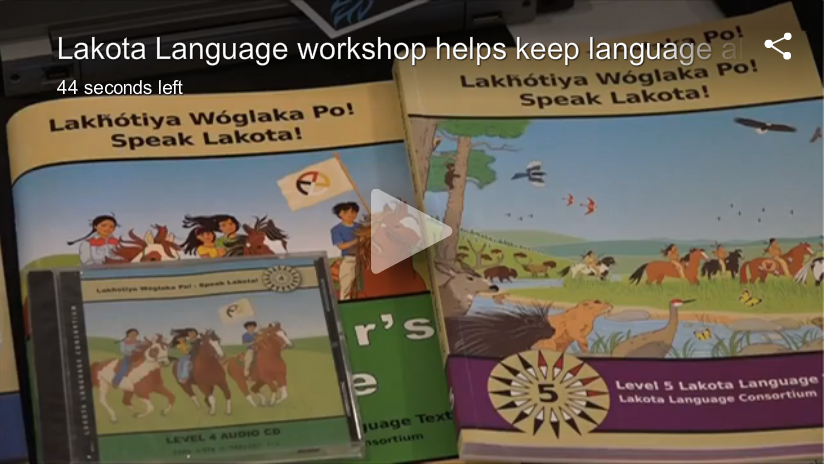Greetings from LSI!
The 10th year of our Institute has brought a multitude of new and returning Lakota language learners, totaling around 120 participants in all! This year we also welcomed special visitors from the Mohegan Tribe, the Three Affiliated Tribes, and Apsáalooke Nation, who traveled to the Institute to learn about the best-practice teaching methods that Indian Country is buzzing about. We are thankful for new visitors and thrilled to share our language revitalization strategies to get others excited about starting their preservation movements.
We’ve put together just a few of our favorite highlights from this week below. This week’s courses included Intensive Lakota/Dakota for Beginners, Lakota/Dakota Phonology, Lakota/Dakota Inflectional Morphology, Lakota Song & Dance, Ethnobotany & Plant Identification, Teaching Lakota/Dakota Methods, Lakota/Dakota Grammar, and more!
Opening Ceremony:
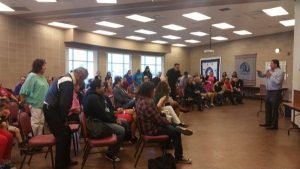 Many words of encouragement were shared at the Opening Ceremony. Standing Rock Chairman Dave Archambault and SRST Council Members extended a warm welcome to all participants of this special year – the 10th Anniversary of LSI. SRST Tribal Education Manager and LSI Coordinator Sunshine Archambault-Carlow spoke about the goals for preservation and maintenance of Lakȟótiyapi, what impact the Summer Institute has for future generations, and where we want to be in 100 years. She remarked how intense these three weeks can be, but that all the hard work is worth it!
Many words of encouragement were shared at the Opening Ceremony. Standing Rock Chairman Dave Archambault and SRST Council Members extended a warm welcome to all participants of this special year – the 10th Anniversary of LSI. SRST Tribal Education Manager and LSI Coordinator Sunshine Archambault-Carlow spoke about the goals for preservation and maintenance of Lakȟótiyapi, what impact the Summer Institute has for future generations, and where we want to be in 100 years. She remarked how intense these three weeks can be, but that all the hard work is worth it!
Lakota Song & Dance:
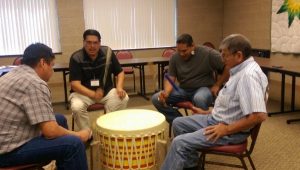 The Lakota/Dakota Song & Dance class, led by elder Ben Black Bear, was small but covered many songs and dances, including the Omaha Dance, Rabbit Dance, Round Dance, Sneak-up dance, Kit fox Society Dance, Strong Heart Society Dance and Song, Honoring Penny Songs and Dances, and Victory Dance.
The Lakota/Dakota Song & Dance class, led by elder Ben Black Bear, was small but covered many songs and dances, including the Omaha Dance, Rabbit Dance, Round Dance, Sneak-up dance, Kit fox Society Dance, Strong Heart Society Dance and Song, Honoring Penny Songs and Dances, and Victory Dance.
Additionally, the group watched videos demonstrating all of the different dances and listened to songs associated with Night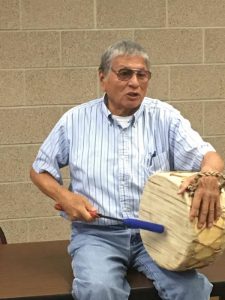 Dances and Love Song Dances, while studying some of their lyrics.
Dances and Love Song Dances, while studying some of their lyrics.
“They are poetic expressions and the students found them very interesting to hear them, write them down, and learn about what they mean. But, one week is not enough time to cover everything that we wanted to talk about! Another Lakota Song and Dance class is scheduled for next week in the evenings,” Ben reassured us.
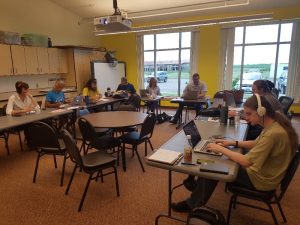 Lakota/Dakota Grammar &
Lakota/Dakota Grammar &
Intensive Lakota/Dakota for Intermediates:
Students in Jan Ullrich’s classes have dived into the depths of Lakota and Dakota Grammar! Participants have been gathering a wealth of knowledge about verb conjugation patterns, syntactic structure and grammar rules within the context of everyday conversation and traditional narratives. Jan shared, “Many of the students in my classes have made tremendous progress in their learning, so that is very encouraging.”
Hand Games, Pottery and more! 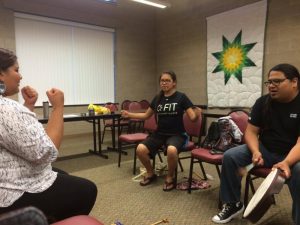
LSI participants study hard during the day…but in their off hours they like to have fun too! This week in the evenings, many of our participants participated in Hand Games tournaments or took a Mandan/Hidatsa pottery class at the Sitting Bull Visitor Center, where they could make something with local Standing Rock clay.
LDL 210 – Lakota/Dakota Inflectional Morphology Instructor Denny Gayton also announced an upcoming Adult Language Competition, which will kick off this Sunday, June 12th with a practice competition.
We encourage you to follow all of our LSI 2016 updates on our Facebook and Twitter pages. Stay tuned for announcements for week 2, including details about upcoming events and a performance by Scatter Their Own!

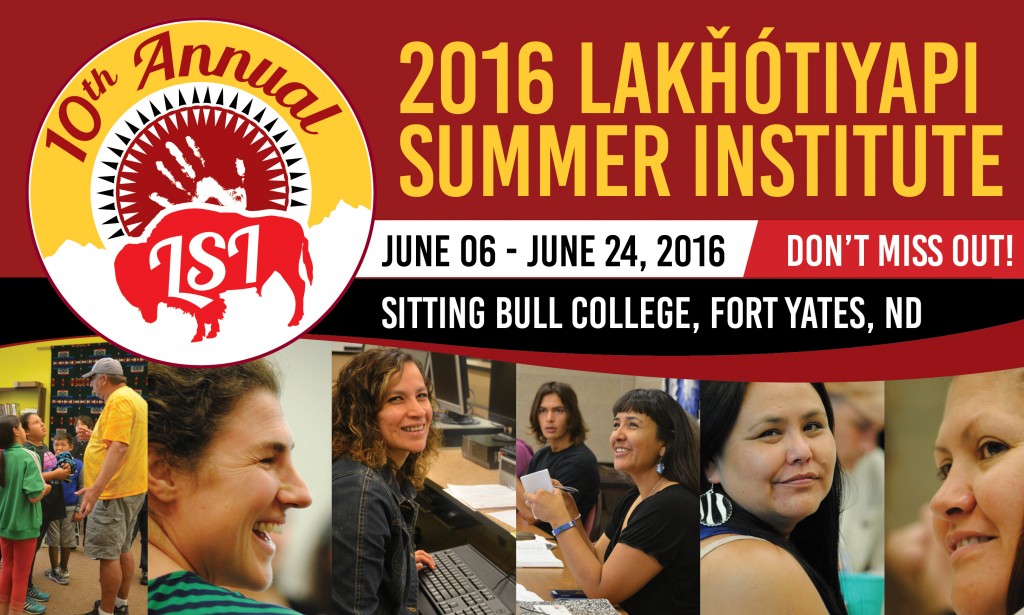


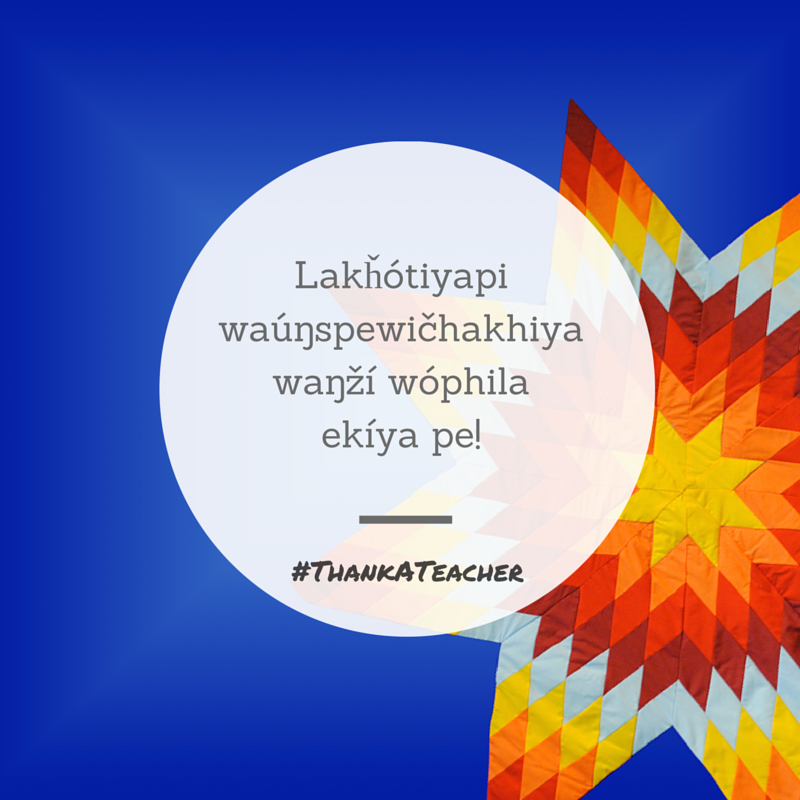 May is National Teacher Appreciation Month.
May is National Teacher Appreciation Month.

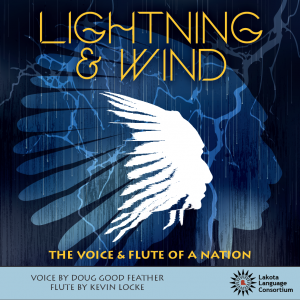
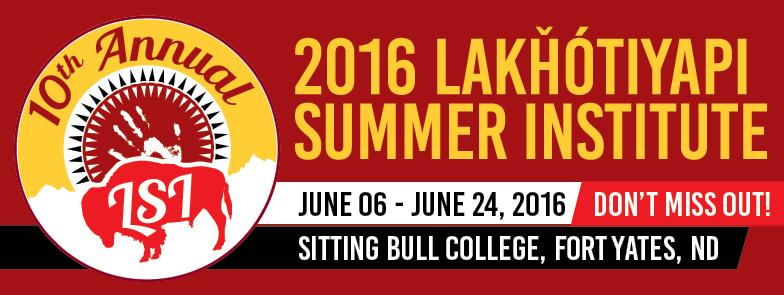

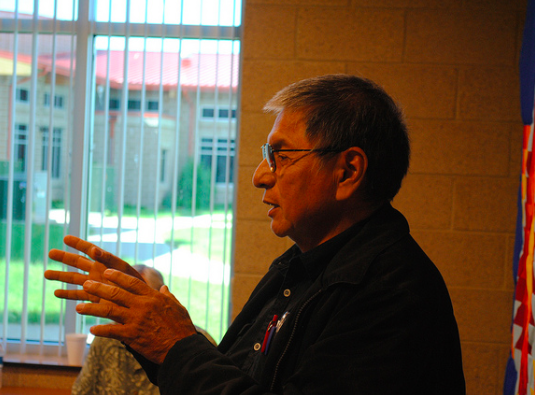
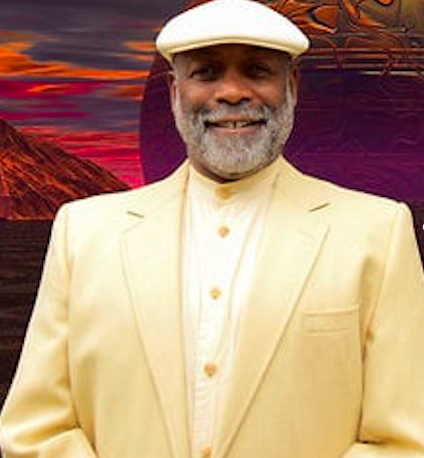 Lawrence Diggs shares his cumulated knowledge of poetry from a lifetime of dedication to the arts. Diggs has traveled to every continent except the Antarctic and addresses his global experiences through his art, such as poetry (in English and Japanese), photography, animation, and ceramics. He aims to use these media to encourage communication on difficult topics. His works are featured in the HGS Gallery in Luvern, MN and he serves as a member of Northeast Artist Network.
Lawrence Diggs shares his cumulated knowledge of poetry from a lifetime of dedication to the arts. Diggs has traveled to every continent except the Antarctic and addresses his global experiences through his art, such as poetry (in English and Japanese), photography, animation, and ceramics. He aims to use these media to encourage communication on difficult topics. His works are featured in the HGS Gallery in Luvern, MN and he serves as a member of Northeast Artist Network.